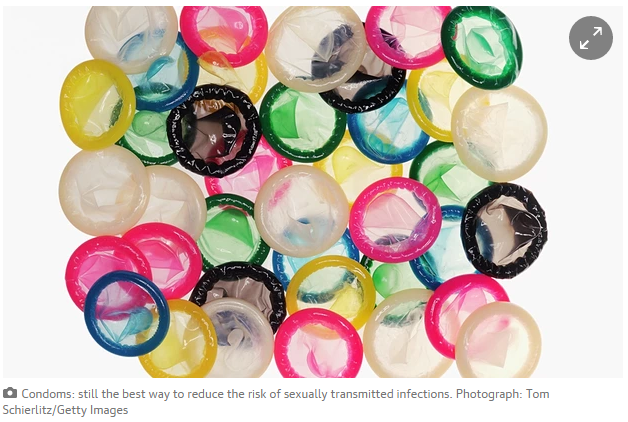İngiliz doktorlar Mycoplasma genitalium adı verilen bir bakterinin yol açtığı ve cinsel yolla bulaşan yeni bir hastalığın dünyada hızla yayıldığı konusunda uyardı. Sadece İngiltere’de 16-44 yaş arası nüfusun yüzde 1’inde bu hastalık görülüyor. Yeni olduğu bildirilse de hastalık ilk olarak 1980’lerde tanımlanmıştı. Erkeklerin yüzde 90’ında hastalığa dair belirti görülmezken kadınlarda cinsel ilişki sonrası kanama görülebiliyor.
Q and A: Sexually transmitted infection Mycoplasma genitalium
Mycoplasma genitalium, or MG, may infect 1% of sexually active Brits. What is it?
A supposedly new sexually transmitted infection has been getting a lot of media attention in the last few days, which has suggested that hundreds of thousands of people are infected with it. Is it new and are you at risk? Here are some basic questions answered.
What is Mycoplasma genitalium?
Also known as MG, Mycoplasma genitalium are bacteria that live in the urinary and genital tracts of humans. Despite being reported as a ‘new’ sexually transmitted infection, it was first discovered in the early 1980s.
Why are we talking about it now?
The International Journal of Epidemiology have just published a cross-sectional study investigating the relationship between sexual activity and MG. The study assessed around 4500 urine samples of people between 16 and 44 years old who reported ever having sex, and around 200 people who had never had sex. There were no cases of MG in people who had never had sex, and the infection was seen in about 1% of sexually active participants. It was more common in those who had had more partners, or reported having more unprotected sex.
How is it spread?
Although it seems extremely likely that MG is a sexually transmitted infection, there haven’t been that many epidemiological studies investigating it. This most recent study suggests it is spread through unprotected penetrative sex – the authors found no cases of MG in people who had only had oral sex, but this does not necessarily mean it’s not passed on in that way (there were very few people in their study who’d only had oral sex). They found weak evidence that it may be passed on via same-sex sexual practises, although there were small numbers of people in these demographics in this study, so the authors report that it’s hard to draw conclusions.
Who is most a risk?
The study found the highest rates of MG in young women (between 16 and 19 years old), and slightly older men (aged between 25 and 34), although this could have been chance variation. The authors also found that, for men, socio-economic status and Black ethnicity were also associated with increased risk. This could be due to differences in sexual behaviour, it could also represent ethnic differences in innate immunity.
How do I know I’ve got it?
At the moment, it seems like there’s not really an easy way to tell. The study found that over 90% of men with MG did not report any symptoms. Just under 45% of the 48 women in the study with MG reported bleeding after sex, which could be a symptom of an MG infection. As yet, there is very little known about the long-term effect of MG. Post-coital bleeding might be a sign of cervical friability or cervicitis. However, reports that MG might increase the risk of pelvic inflammatory disease might be premature, as MG infection was not associated with any other symptom of the disease.
What should I do if I think I have it?
If you have any symptoms of an STD, go and visit your GP or a sexual health clinic and get tested. Even if you don’t have symptoms, if you’re having unprotected sex or frequently changing sexual partners, it’s important to get regularly tested. That said, tests for MG are not currently included in the general tests that you receive, so it won’t be picked up unless it’s specifically investigated. The NHS website reports that this study might open a debate about whether it should be screened for, but that more information about the long-term effects of MG infection is needed to inform that debate.
What should I do to avoid it?
Do the same as you would to avoid any sexually transmitted infection or disease – use protection (condoms – contraceptive pills or coils will protect from pregnancy but not infection), and get tested regularly.



